
National News, Analyses & Opinions
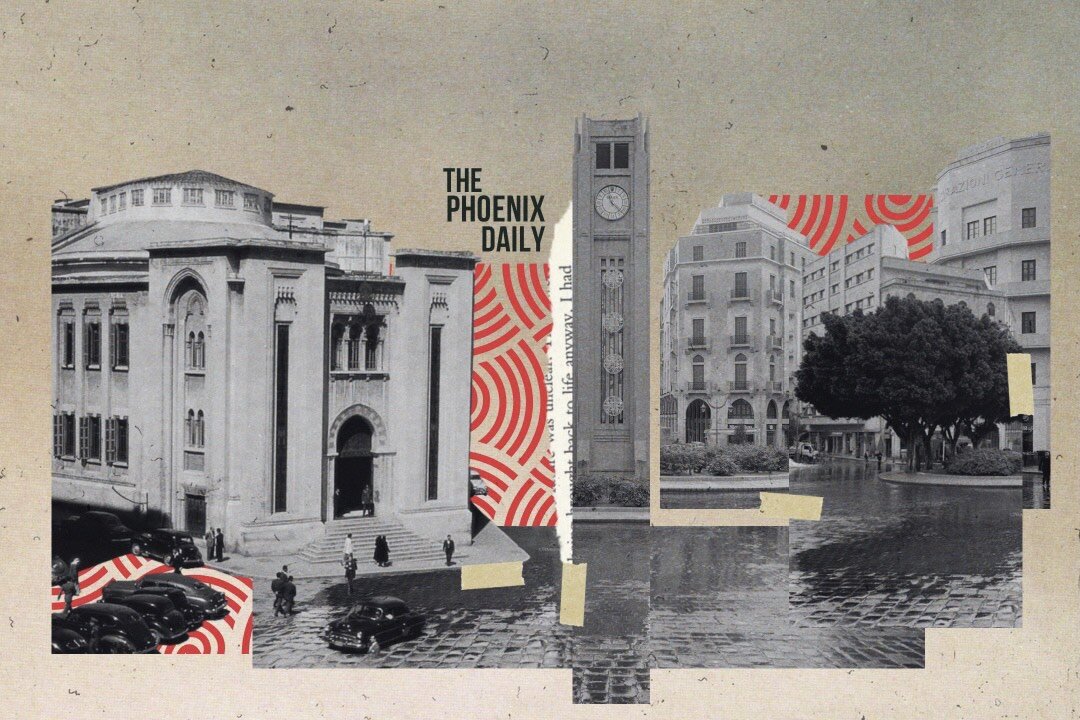
Lebanon in dire need of reform: Is the country ready for a new social contract?
Opinion analysis by Myriam Akiki, Staff Writer
It is safe to say that the Lebanese State in itself has failed. It has long lost its authority, is in no way capable of providing for its citizens and a sizeable portion of the Lebanese people no longer consider it to be legitimate. Lebanon is in desperate need of a brand-new social contract. Any variant of the current system will only lead to history repeating itself and thus, robbing Lebanese citizens of their freedom once again.
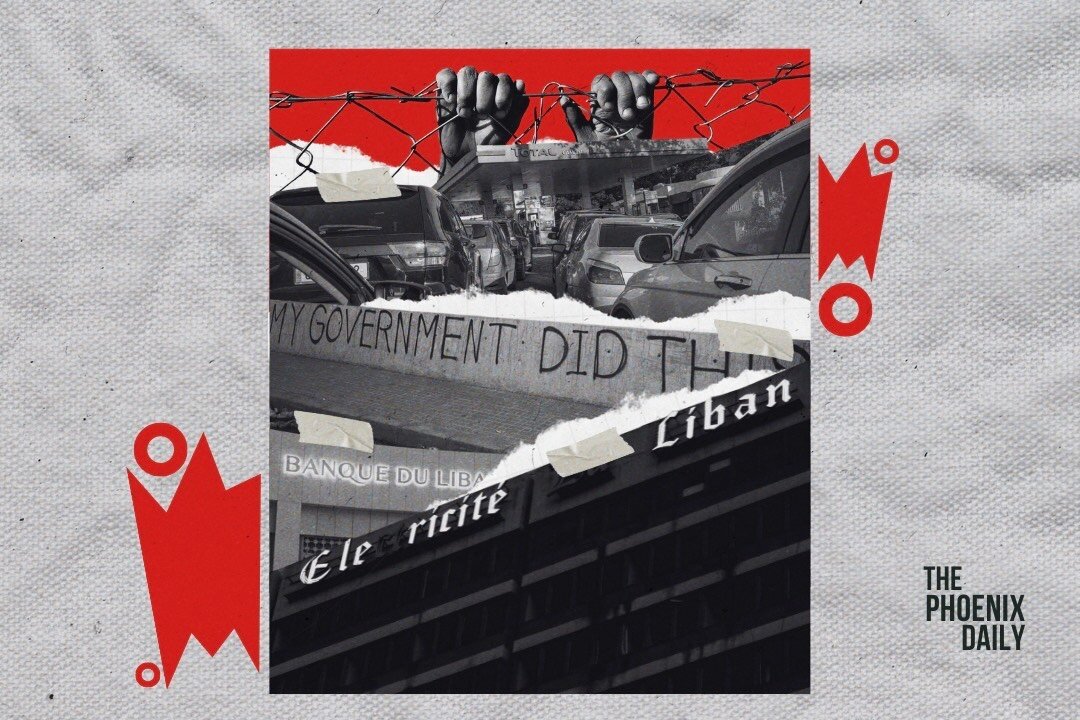
A Day in the Life of a Middle Class Resident of Lebanon - Explaining Lebanon’s political and economic crisis
Opinion analysis by Yara Zebian, Featured Writer
Have you ever tried to explain what we, in Lebanon, have been going through to people abroad? It seems that no matter how much we try, no one really understands the terrifying impact this crisis has on each individual living in Lebanon. This article tries to explain the daily life of a middle class resident in Lebanon by walking the reader through a day in such a life. It tries to instill in the reader the raw emotions of frustration, fury, and despair that have become typical emotions to those of us in Lebanon.
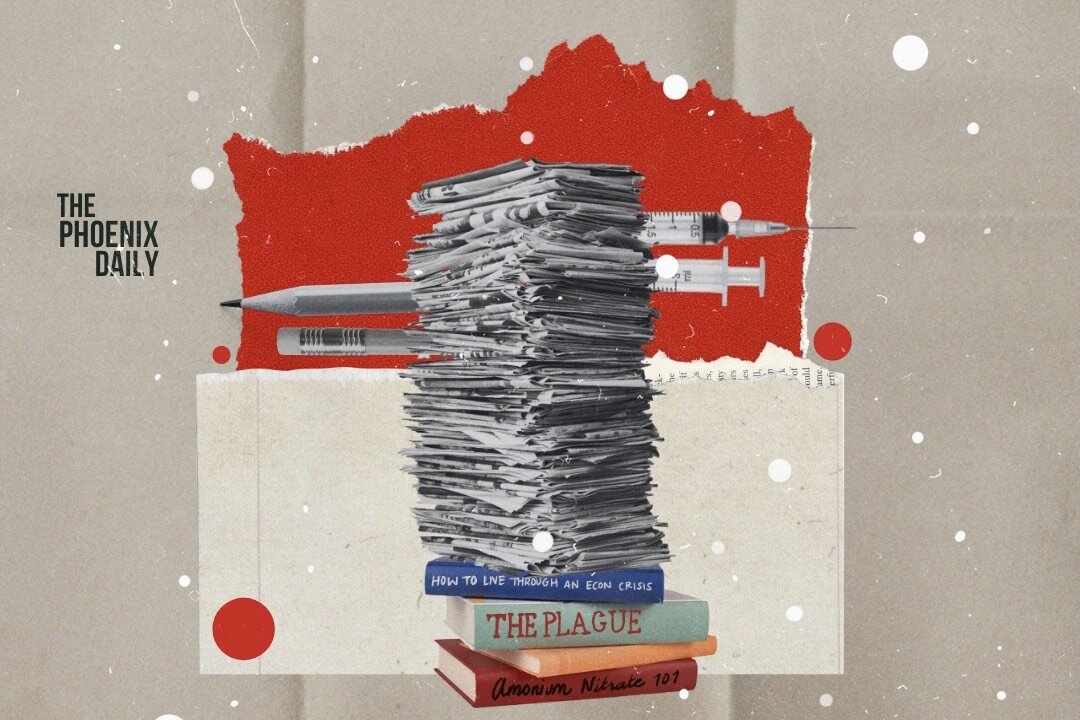
Schools and Universities in Lebanon in 2021 - The country’s crises threaten their sustainability
Opinion analysis by Maria Wehbe, Staff Writer
Over the past year and a half, people all over the world have been faced with the unpredictable and tragic threat of the COVID-19 pandemic that wrecked countries and tore families apart. Yet, in the case of Lebanon, the COVID-19 pandemic is one big problem among many others, and for some citizens, isn’t even one to begin with. From a deadly explosion that rocked the capital city of Beirut, to the hyperinflation, to the economic crisis, to the fuel crisis, to the shortage of medication and basic necessities, and the list goes on: the country is truly one that is in absolute crisis. One sector that particularly took a very big hit was the education sector: teachers and professors are fleeing the country, one after the other, in the hope of finding better opportunities abroad. Some schools and universities are being threatened of closing down and there is a limited amount of internet connection to conduct classes online and there is a limited amount of fuel to go to schools and universities to conduct classes in-person. And so, the question is this: will schools and universities be able to remain open this academic year, or will they succumb to the various crises that are taking the country by storm?
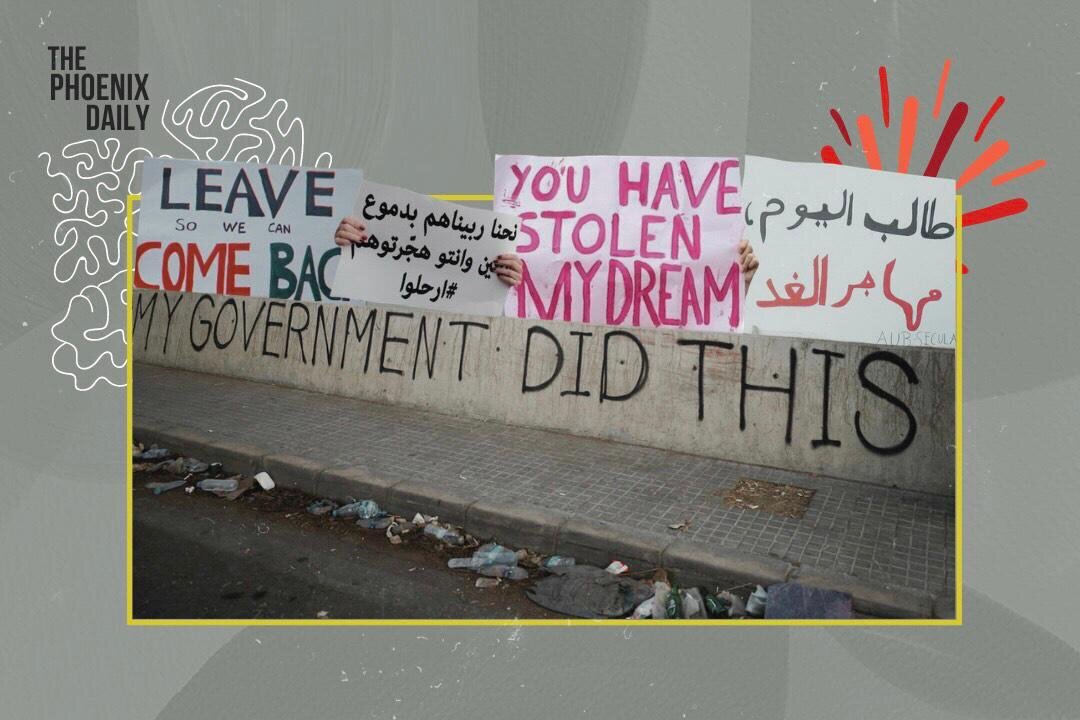
The Lebanese Brain Drain: A never-ending cycle of immigration and separation
Opinion analysis by Maria Wehbe, Featured Writer
So many Lebanese citizens are fleeing the country in the hope of finding a better life abroad: as of September of 2020, about 380 000 Lebanese are said to be considering leaving their home country as a result of the current economic and political meltdown. With that being said, what are the effects of Brain Drain on the country in question? Well, here are a few: loss of tax revenue, a shortage of important and skilled workers, loss of potential future entrepreneurs, loss of innovative ideas along with many other disastrous repercussions. In the long run, it reduces human capital, economic growth, demographic shifts and increases the cost of public goods.
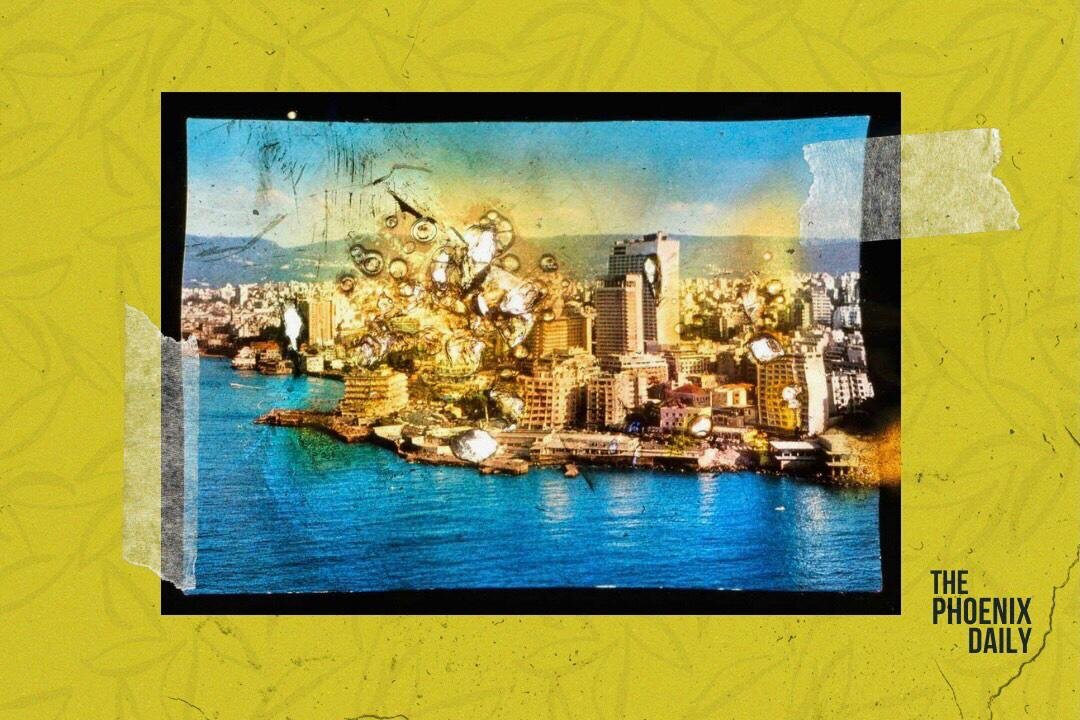
The Memorialization of the Lebanese Civil War Through Art Production - Why is art important in transitional justice? And how have Lebanese artists memorialized the civil war?
Analysis by Audrey Azzo, Visiting Contributor
Transitional justice is an interdisciplinary field of study that focuses on post-conflict societies and encompasses political science, economy, sociology amongst other disciplines related to social sciences. When theorizing transitional justice, scholars overlooked the importance of art in the mechanisms employed. In 2012, The ICC found homas Lubanga Dyilo guilty of war crimes in the Democratic Republic of Congo and for the first time since the emergence of the field, the court insisted on the use of art as a means of reparation to the victims.
In the aftermath of the Lebanese civil war, little to none of the transitional justice mechanisms that we know of were employed, and the necessary task of commemorating the war was left to the civil society. The essay focuses on the importance of art in transitional justice and provides examples of art productions exhibited by prominent artists in the years following the uncivil war.
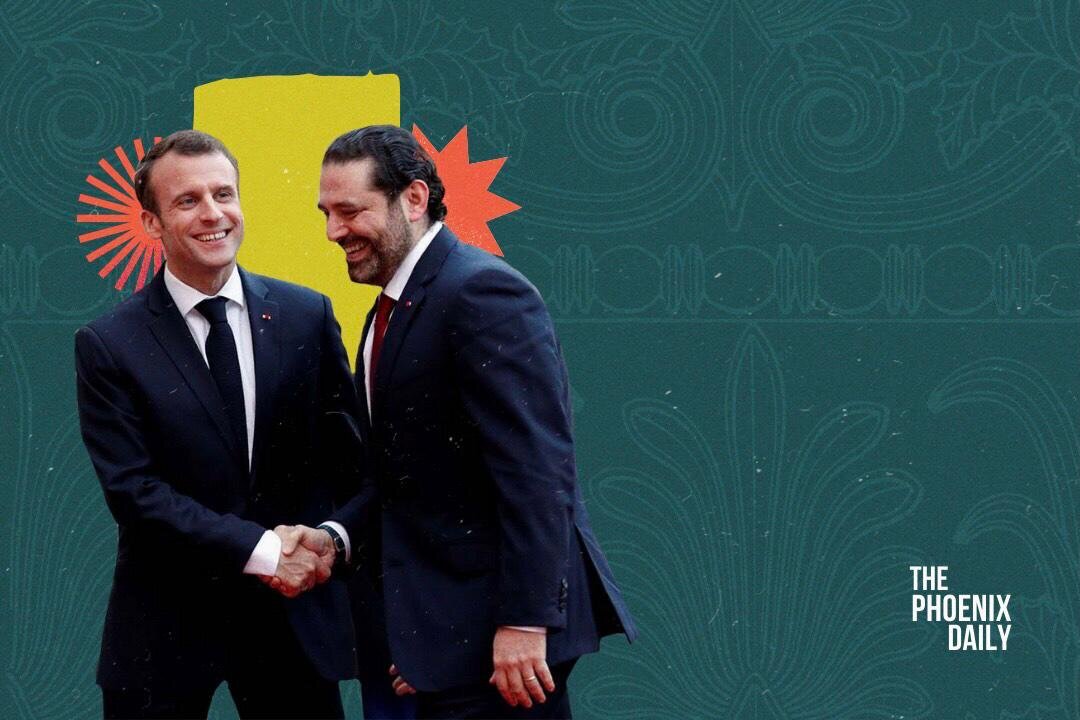
Can the International Community Save Lebanon? - What has been, and should be, the role of international actors amid Lebanon’s crisis
Opinion Analysis by Gaia Bchara, Featured Writer
The international community’s involvement in Lebanon has long been that of a stabilizing force in favor of the status quo. This is clearest in the continuous economic and financial bailouts that served to bolster Lebanon’s political class, free of any coherent implementation plans. At the heart of policies directed at the Lebanese political class lies the prospect of reform. Today, it is increasingly clear that a meaningful Lebanese partner cannot be found in its current oligarchy. As such, fashioning a new role for the international community in Lebanon is central to the country’s reconstruction.

Lebanese Tourism – Summer 2021 Edition: The country’s palliative amidst its crises?
Opinion Analysis by Zeina Dagher, Featured Writer
Lebanon’s tourism sector has always been credited with keeping the country’s economy afloat knowing that the industrial sector is quasi-absent. In the midst of the worsening economic crisis Lebanon is going through, and after all the restrictions that the pandemic had imposed on Lebanese businesses, there’s no doubt that this sector took a hard blow. But can we say that summer 2021’s tourist activity will bring them, and the economy in general, some relief? On one hand, the Lebanese pound is at an all-time low, which is extremely attractive for foreigners. But on the other hand, there’s the risk of growing civil and political strife as shortages abound. Not to mention the recent violent outburst of israel and the overall unsteady regional situation that could easily dissuade tourists from spending their summer here and strike one of Lebanon’s only chances of temporarily readdressing its economy…

Lebanon’s Economic Performance (2020/2021): A House of CardsMacroeconomic Indicators and International Responses to Lebanese Officials
Opinion Analysis by Siriine ElKhalili, Featured Writer
Lebanon’s economic crisis is deepening with hyperinflation, shortages in essential services, frightening poverty rates, and inconsiderate political authority. Lebanon’s ruling class have proven to be a catalyst of the current crises piling up and unfolding, and foreign countries continue to express their disappointment. How long will the Lebanese people continue to face this injustice?

A Lapse in Diplomacy: The (now former) Lebanese FM provokes nationalist outrage in the Gulf
Opinion Analysis by Naif Al Rogi, Featured Writer and Alissar Azzam, Contributor
Following last month’s Captagon stink, the (now former) Lebanese minister of foreign affairs appears on TV last week causing another stink that stokes already strained Lebanese-Saudi relations, provokes nationalist outrage in the gulf, and jeopardizes the livelihood of the many Lebanese families depending on gulf remittances for survival. Meanwhile, Lebanon’s traditional ally and donor displays willingness to go about the relations of fraternity and respect that have dominated Lebanese-Saudi relations for so long.

Lebanon is “Waiting for Godot”: An analysis on the failure of the Lebanese revolution
Opinion Analysis by Taleen El Gharib, Featured Writer
If Samuel Beckett believes that people live aimlessly waiting for a purpose, and Sigmund Freud believes the act of waiting is a coping mechanism against pain, then what can one deduce about the future of Lebanon and movements against corruption?

A Panoramic View of the Maritime Borders ConflictBetween Lebanon and Syria - tackling the issue through different analytical perspectives
Opinion Policy Analysis by Yara Dally, Visiting Contributor
All nations are searching for ways to stand forward and working out to release their interest at any costs, and then you have Lebanon; where it’s political elites having loyalties to external actors rather the citizens, might be once again victim of a geopolitical game.

Red Flags for the Local Financial System - Lebanon will soon be out of the global financial system if no corrective measures are implemented
Opinion Analysis by Yara Dally, Visiting Contributor
Another menace causing concern about Lebanon's presence in the global financial system. International lenders have long viewed the country's banks as risky, putting correspondent banks' relationships with the Lebanese banking industry on the verge of termination.
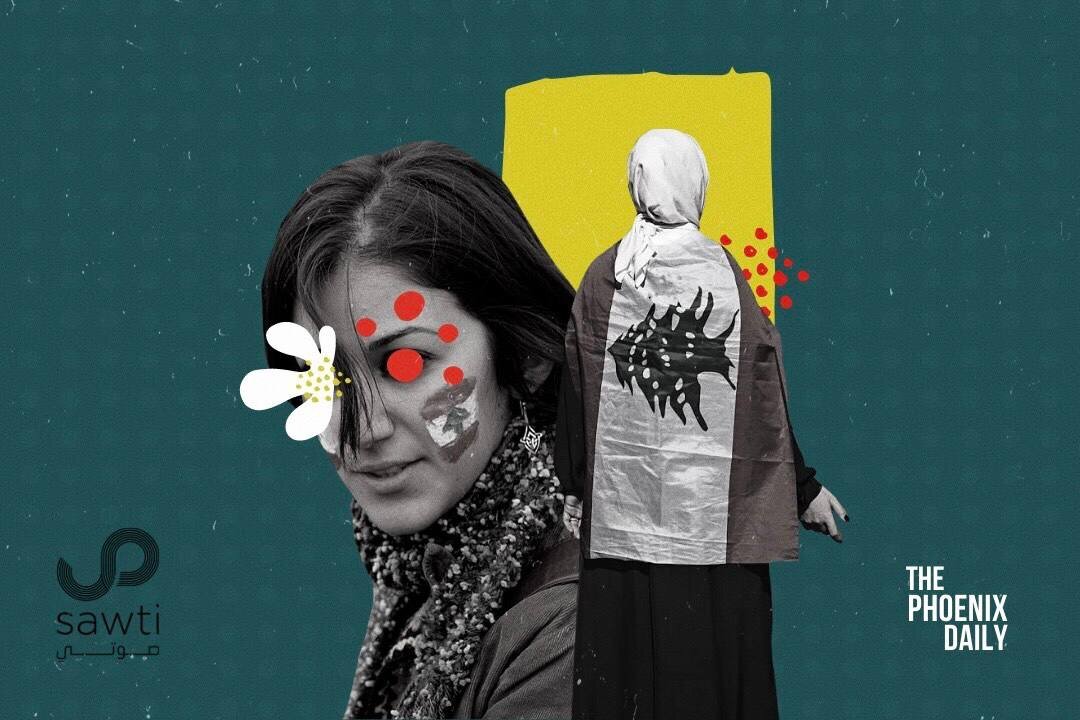
Women’s Political Exclusion in Lebanon: The Legacy of Colonial Pasts, Religious Institutions, and Sectarianism
Opinion Analysis by Roa Daher, Featured Writer
In the span of a few decades, Lebanon went from being one of the first Arab countries to grant women suffrage in 1952 to now having one of the lowest rates of women’s political participation in the MENA region. Even though more than 100 women candidates registered in the 2018 parliamentary elections, which is a ten-fold increase from just a decade earlier and the largest number in Lebanese history, women only won 6 out of 128 seats in the parliament. 49.69% of the Lebanese population is composed of women, and yet these women only hold 4.69% of the seats in parliament. Beyond the obvious issue of a lack of representation in politics, women face many obstacles that may prevent them from seeking a seat in the parliament, never mind actually winning the seat against a male candidate.

Lebanon 2022 elections: how to prepare? - A guide to having fruitful elections as a first step towards recovery
Analysis by Zeina Dagher, Staff Writer
Today more than ever, it’s hard to imagine that a poor Lebanese citizen, who can barely afford food on the table, will show interest in or have time to read academic articles pinpointing the alleged “root of the problem”. Nor will this citizen be able to resist a $20 bill bribe in exchange for a vote. He or she may not even show interest in voting, politics being a remote concern compared to bodily needs like food and rest. But Lebanon can’t afford another failed election. So the question is: how do we ensure the best voting conditions to be able to elect a truly reformed parliament? How do we make sure that the horrible experience of the 2018 elections doesn’t happen again? And what is our role and the civil society’s in paving the way for these successful elections?

